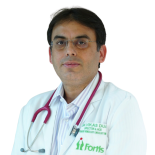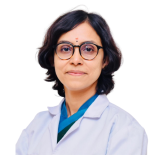About Paediatric Oncology
Pediatric oncology is a medical specialty focused on taking care of children suffering from cancer. Advancement in pediatric oncology is one of the grand success stories of the last millennium. A pediatric oncologist is a healthcare professional with specialized skills in managing children with cancer. They care for children as well as their families at all treatment stages, from diagnosis to long-term follow-up or palliative care, and often provide support for several years. Read on to learn more about the symptoms, diagnosis, types, and treatment of pediatric cancer.
Signs and Symptoms of Pediatric Cancer
- Unexplained weight loss
- Headaches
- Increased swelling or persistent pain in legs, back, or joints
- Lump, especially in the abdomen, chest, neck, or pelvis
- Excessive bruising, bleeding, or rash
- Continual infections
- A whitish color behind the pupil
- Nausea
- Constant fatigue
How do Pediatric Oncologists Diagnose Cancer?
Oncologists begin an evaluation with a discussion of symptoms, a review of medical history, and a physical examination. Based on the details collected, one or more of the following diagnostic procedures may be performed to confirm or rule out a cancer diagnosis:
- Blood tests: For example, complete blood count (CBC) to determine if the patient has normal levels of blood cells.
- Biopsy: In this, a small piece of tumor is taken out of the body to be examined for cancer cells.
- Lumbar puncture: It is a diagnostic procedure during which a small sample of fluid surrounding the spine is removed using a thin needle.
- Imaging tests: These display detailed pictures of bones, soft tissues, and organs inside the body. For instance, MRI is used for the assessment of tumors localized to the abdomen and pelvis.
Early diagnosis of pediatric cancers is crucial. With advancements in technology, survival rates of pediatric cancer patients have risen dramatically over the past few years.
Types of Pediatric Cancer
Some of the most prevalent forms of cancer in children are as follows:
Leukemia: This term is used for cancers of the blood cells. Leukemia begins in blood-forming tissues such as the bone marrow. Acute lymphocytic leukemia (ALL), acute myeloid leukemia (AML), chronic lymphocytic leukemia (CLL), and chronic myeloid leukemia (CML) are its distinct types.
Lymphoma: This condition affects the lymphoid tissues and is classified into non-Hodgkin lymphoma and Hodgkin lymphoma. The most common presenting sign of lymphoma is painless lymphadenopathy.
Neuroblastoma: This form of pediatric cancer begins in the neuroblasts of the sympathetic nervous system.
Wilm’s Tumor (Nephroblastoma): This kidney cancer is the most prevalent intra-abdominal tumor diagnosed in children.
Rhabdomyosarcoma: This soft-tissue cancer of the striated muscle typically occurs in the head, neck, and genitourinary tract region of the body.
Retinoblastoma: It is a rare type of cancer that originates in the retina. The main presenting sign of this tumor type is leukocoria. Its treatment comprises laser photoablation (vaporizing tissue using ultraviolet light) and cold therapy.
Osteosarcoma: This type of aggressive bone cancer affects the large bones of the arms or legs and most often occurs near the trumpet-shaped end of the long bones.
Stages of Pediatric Cancer
Staging is a means to estimate the spread of cancer beyond its original site. Many cancers have stages – 1, 2, 3, or 4 – with certain stages categorized into substages. The lower the number, the more contained the tumor is. A higher number suggests that the cancer is more advanced.
Treatment of Pediatric Cancer
The types of treatment will rely on the type of cancer and the extent to which it has spread. The most commonly used therapies for childhood cancer include:
Surgery: Conventional surgery for a solid tumor, which involves the usage of a scalpel to remove the diseased tissue, is performed under sterile conditions in a medical facility. Cytoreductive surgery and hyperthermic intraperitoneal chemotherapy (CRS-HIPEC) require the surgical removal of more than one intra-abdominal tumor, succeeded by intraoperative instillation of heated chemotherapy.
Radiation Therapy: It is utilized in many pediatric cancers involving localized tumors. Most malignant brain tumors, head and neck cancers, etc., receive daily radiation at the time of treatment for a localized tumor. Radiation therapy necessitates the delivery of ionizing radiation to a localized portion, generally utilizing external beam radiation administered by a linear accelerator. In external beam radiation therapy (EBRT), the most popular form of radiation therapy, radiation Is delivered from a machine.
Chemotherapy: During this procedure, cytotoxic drugs are required to slow down the growth or destroy cancer cells. The drugs are mainly injected into a vein, although certain drugs may be administered by mouth or into the fluid around the spine. Side effects of chemotherapy include hair loss and diarrhea. Most of the children being treated for cancer need a central venous access device (CVAD). A CVAD is required for the safe delivery of chemotherapeutic drugs while also allowing constant venous access through which blood can be withdrawn or anesthetic medicines can be delivered without subjecting the child to frequent needle punctures.
Hematopoietic Stem Cell Transplantation: It refers to replacing an individual’s blood-forming cells after they have been destroyed by extremely high doses of radiation or chemotherapy. It may also be used to treat certain forms of solid tumors.
Immunotherapy: This targeted therapy aims to remove tumors by activating the patient’s immune system. Monoclonal antibodies and chimeric antigen receptor (CAR) T-cell therapy (a technique in which scientists genetically engineer a patient’s immune cells to make a new protein) have dramatically refined outcomes for children with acute ALL.
The most effective strategy to decrease the burden of childhood cancer and enhance outcomes is to focus on a rapid, correct diagnosis followed by an effective, evidence-based therapy with tailored supportive care. Fortis stands as one of the best pediatric oncology hospitals in India.
Our Team of Experts
View allRelated Specialities
Other Specialities
-
Explore Hospitals for
Fortis Cancer Institute, Defence Colony, New Delhi Fortis Memorial Research Institute, Gurgaon Fortis CDOC, Chirag Enclave, New Delhi Fortis Escorts Heart Institute, New Delhi Fortis Flt. Lt. Rajan Dhall Hospital, Vasant Kunj, New Delhi Fortis La Femme, Greater Kailash II, New Delhi Fortis Escorts Hospital, Faridabad Fortis Hospital, Noida Fortis Hospital, Shalimar Bagh, New Delhi Fortis Escorts Hospital, Amritsar Fortis Hospital, Mohali Fortis Escorts Hospital, Jaipur Fortis Hospital, Anandpur, Kolkata Fortis Hospital CG Road Bangalore Fortis Hospital - Greater Noida Fortis Hospital & Kidney Institute, Gariahat, Kolkata Fortis Hospital BG Road Bangalore Fortis Nagarbhavi Bangalore Fortis Hospital, Rajajinagar, Bengaluru Fortis Hospital, Richmond Road, Bengaluru Hiranandani Fortis Hospital, Vashi, Mumbai Fortis Hospital, Mulund, Mumbai Fortis Hospital, Kalyan, Mumbai Fortis Hospital, Ludhiana S L Raheja Hospital, Mumbai Fortis Hospital Mall Road, Ludhiana Fortis Hospital,Manesar,Gurugram -
Explore Doctors for by Hospital
Doctors in Fortis Cancer Institute, Defence Colony, New Delhi Doctors in Fortis Memorial Research Institute, Gurgaon Doctors in Fortis CDOC, Chirag Enclave, New Delhi Doctors in Fortis Escorts Heart Institute, New Delhi Doctors in Fortis Flt. Lt. Rajan Dhall Hospital, Vasant Kunj, New Delhi Doctors in Fortis La Femme, Greater Kailash II, New Delhi Doctors in Fortis Escorts Hospital, Faridabad Doctors in Fortis Hospital, Noida Doctors in Fortis Hospital, Shalimar Bagh, New Delhi Doctors in Fortis Escorts Hospital, Amritsar Doctors in Fortis Hospital, Mohali Doctors in Fortis Escorts Hospital, Jaipur Doctors in Fortis Hospital, Anandpur, Kolkata Doctors in Fortis Hospital CG Road Bangalore Doctors in Fortis Hospital - Greater Noida Doctors in Fortis Hospital & Kidney Institute, Gariahat, Kolkata Doctors in Fortis Hospital BG Road Bangalore Doctors in Fortis Nagarbhavi Bangalore Doctors in Fortis Hospital, Rajajinagar, Bengaluru Doctors in Fortis Hospital, Richmond Road, Bengaluru Doctors in Hiranandani Fortis Hospital, Vashi, Mumbai Doctors in Fortis Hospital, Mulund, Mumbai Doctors in Fortis Hospital, Kalyan, Mumbai Doctors in Fortis Hospital, Ludhiana Doctors in S L Raheja Hospital, Mumbai Doctors in Fortis Hospital Mall Road, Ludhiana Doctors in Fortis Hospital,Manesar,Gurugram



















